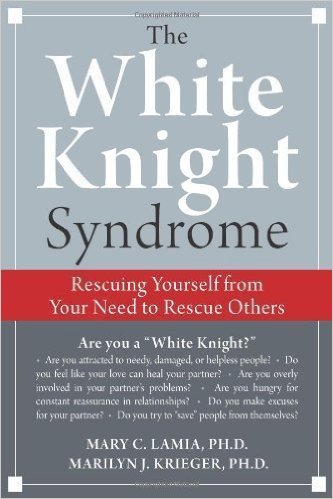 |  | The White Knight Syndrome: Rescuing Yourself from Your Need to Rescue Others
Author: Mary C. Lamia and Marilyn J. Krieger
Publisher: New Harbinger (2009)
Paperback: 208 pages
ISBN-10: 1572246243
ISBN-13: 9781572246249


|
Book DescriptionMany of our members are involved in relationships that feel unbalanced--we may be motivated to "help," "rescue," and give too much while at the same time, our efforts seem to cause more problems then they solve.
If you find yourself attracted to people who are helpless, vulnerable, or damaged, or feel like you always end up taking care of your romantic partners, you may recognize yourself in one or more of the "white night" descriptions provided in this helpful book, which mixes case studies with information and questions for further thought. As the authors define it, a white knight is a person of either gender who tends to seek out partners who need rescuing. White knights hope to receive admiration,
validation, or love from their partners, but ultimately end up cheating themselves out of emotionally healthy relationships.
The White Knight Syndrome aims to help readers:
- Discover why they attract or seek out needy or damaged partners
- Find out what type of white knight they are
- Recognize the unhealthy ways they try to meet their partner's needs while ignoring their own
- Channel their energies into building balanced, healthy relationships
About the AuthorsMarilyn J. Krieger, Ph.D., is a clinical psychologist in private practice in Marin County, CA.
Mary C. Lamia, Ph.D., is a clinical psychologist and psychoanalyst in private practice in Marin County, CA. She is also a professor at the Wright Institute in Berkeley, CA.





 Poll
Poll
